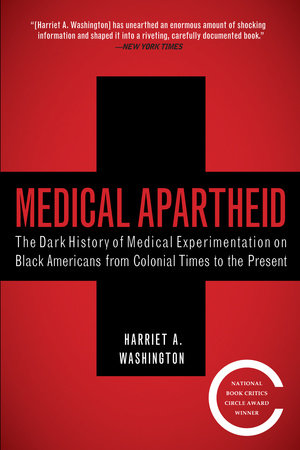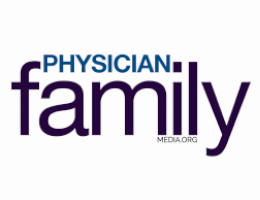The theme for Black History Month 2022 is Black Health and Wellness. As part of its Virtual Festival 2022, The Association for the Study of African American Life and History is offering a live session with Harriet A. Washington on February 15, 2022 at 8:00 pm ET. The event is free and will be recorded for on-demand viewing. Also, check out ASLAH TV for the festival trailer, past event recordings, and more.
In the Winter 2022 issue of Physician Family Magazine, I shared a literature review focusing on books that examine systemic racism and sexism in medicine. One of the books originally in my review, Medical Apartheid, didn’t make it to the final version, in part because of its age. Originally published in 2006 and reissued by Penguin in 2008, Washington’s book is still a fascinating and important book, even sixteen years later.

Washington, Harriet A. (2008). Medical Apartheid: The Dark History of Medical Experimentation on Black Americans From Colonial Times to the Present. Penguin Books.
Washington: “The much bewailed racial health gap is not a gap, but a chasm wider and deeper than a mass grave. This gulf has riven our nation so dramatically that it appears as if we were considering the health profiles of people in two different countries–a medical apartheid.”
Harriet Washington, the 2021 Cherng Distinguished Scholar, is well-known for her work examining the intersections of racism and medical ethics. In addition to working as a journalist, Washington has served as a medical ethics fellow at Harvard Medical School and as a senior research fellow at the National Center for Bioethics at Tuskegee University.
Medical Apartheid provides a comprehensive history of the ways in which the American medical system has exploited and experimented on Black Americans. Washington begins her argument by dispelling the myth that the syphilis experiments at Tuskegee (which began in 1932) were an anomaly. She goes back to the 18th century and discusses in Part I, titled, “A Troubling Tradition” to uncover medical exploitation on plantations that continued through emancipation and beyond. In Part 2, “The Usual Suspects” Washington covers eugenics, radiation experiments on African Americans, the use of Black prisoners as research subjects, and how young African Americans have become a new target for research. Part 3 focuses on molecular bias, illness as crime, and how in “the machine age” African Americans are often subject to experimental surgical technology. The book ends with an epilogue covering current medical research on Black Americans.
Washington points to how “racial homogeneity of American medical researchers lies at the very heart of the problem” and offers “a more nuanced look at the calculus of racism’s effects on experimental practice.. . .a social history that traces the key role that various researchers have played in both promulgating and refuting racism in medicine.” Ultimately, she argues that the current distrust and fear of medicine in the Black community is the direct result of that history.
In addition to the book, Harriet Washington also co-authored a report in The Journal of the American Medical Association in 2008 titled “African and American Physicians and Organized Medicine 1846 to 1968, Origins of a Racial Divide.” You can also read the transcript of her interview with NPR’s Farai Chideya.
I hope you’ll check out Washington’s presentation and the variety of events during the virtual festival!

